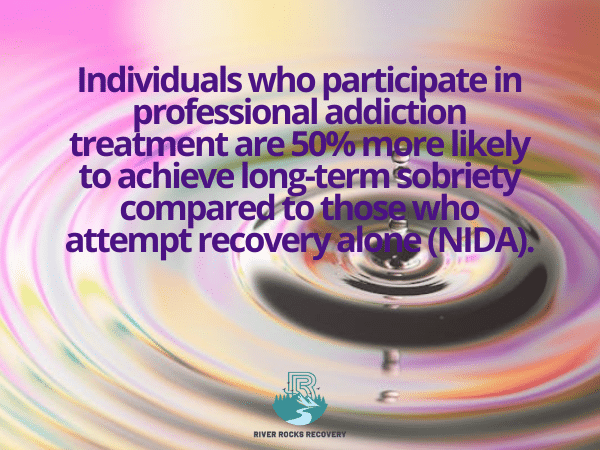Achieving long-term sobriety is a journey that requires more than just a desire to quit using drugs or alcohol. Recovery from addiction involves addressing the physical, emotional, and psychological aspects of substance use while building the skills and support systems necessary for sustained sobriety. Addiction treatment programs play a critical role in this process by offering structured care, evidence-based therapies, and ongoing support tailored to each individual’s needs.
This is where addiction treatment programs come in handy, acting as a lifeline for people seeking long-term sobriety. Here’s a detailed look at how these programs help people achieve long-term rehabilitation. Let’s jump in!
Structured Treatment Plans Tailored to Individuals’ Needs
One of the most significant advantages of addiction treatment programs is their tailored approach to treatment. Addiction affects people differently, so a one-size-fits-all solution is rarely effective.
Professional addiction programs evaluate each person’s unique circumstances, such as their history of substance abuse, mental health issues, and personal aspirations. Based on this assessment, individualized treatment programs are established to meet the individual’s specific needs.
- Medical detox: It is the first step for many people on their quest to manage withdrawal symptoms safely and painlessly.
- Therapeutic Approaches: To help people recognize and modify harmful patterns, programs frequently include evidence-based therapies such as Cognitive Behavioral Therapy (CBT), Dialectical Behavior Therapy (DBT), and Motivational Interviewing (MI).
- Holistic Support: In addition to professional care, many programs address physical, emotional, and spiritual health, resulting in a comprehensive approach.
Skill Development for Coping and Relapse Prevention
Maintaining sober is more than just stopping a habit; it’s about learning how to live life without it. Addiction treatment programs place a premium on teaching clients fundamental skills such as stress management, emotional regulation, and trigger resistance.
- Stress Management Techniques: Mindfulness, meditation, and breathing exercises prepare people to deal with difficult situations.
- Relapse Prevention Planning: Many programs involve instruction on recognizing early warning signs of relapse and devising proactive ways to deal with them.
- Healthy Routines: Habits like regular exercise, adequate eating, and planned daily schedules promote stable and meaningful living.
How Addiction Programs Support Long-Term Sobriety
Addiction programs are designed to provide comprehensive care that addresses both the immediate and long-term needs of individuals in recovery. Here’s how these programs support sustained sobriety:
1. Medically Supervised Detox
The first step in most addiction programs is detox, which allows the body to safely eliminate substances.
- Why It Matters: Detox prepares individuals for the recovery process by addressing physical dependence.
- Medical Support: Reduces discomfort and risks associated with withdrawal symptoms.
2. Individualized Treatment Plans
No two recovery journeys are the same, which is why individualized care is essential.
- Comprehensive Assessment: Treatment plans are based on a detailed evaluation of substance use history, mental health, and personal goals.
- Tailored Care: Programs adapt to the unique needs of each individual, ensuring effective treatment.
3. Evidence-Based Therapies
Therapies form the foundation of addiction treatment programs, addressing the root causes of addiction and teaching coping strategies.
- Cognitive Behavioral Therapy (CBT): Helps individuals identify and change harmful thought patterns that lead to substance use.
- Dialectical Behavior Therapy (DBT): Focuses on emotional regulation and building healthy relationships.
- Trauma-Informed Care: Addresses the impact of past trauma on addiction.
- Motivational Interviewing (MI): Encourages individuals to explore and strengthen their motivation for sobriety.
4. Structured Levels of Care
Addiction programs offer various levels of care to meet individuals where they are in their recovery journey:
- Partial Hospitalization Program (PHP):
- Provides intensive treatment during the day with access to therapy, medical care, and group sessions.
- Ideal for individuals transitioning from inpatient care or those needing more support than outpatient programs offer.
- Intensive Outpatient Program (IOP):
- Offers flexibility for individuals balancing treatment with work, school, or family responsibilities.
- Combines individual therapy, group therapy, and skills training.
- Outpatient Program:
- Designed for individuals who have completed higher levels of care but still benefit from ongoing support.
- Focuses on relapse prevention, therapy, and accountability.
- Sober Living Program:
- Provides a structured, substance-free environment for individuals transitioning back to independent living.
- Encourages accountability, peer support, and the development of healthy routines.
5. Relapse Prevention Training
Relapse prevention is a cornerstone of addiction treatment programs, equipping individuals with tools to maintain sobriety:
- Identifying Triggers: Recognizing situations, emotions, or environments that may lead to relapse.
- Coping Skills: Learning healthy ways to manage stress, cravings, and emotional challenges.
- Building a Support Network: Connecting with peers, mentors, and support groups to maintain accountability.
6. Addressing Co-Occurring Disorders
Many individuals with substance use disorders also struggle with mental health conditions such as depression, anxiety, or PTSD. Integrated treatment addresses both issues simultaneously:
- Medication Management: Prescribing medications to manage mental health symptoms and reduce cravings.
- Dual Diagnosis Therapy: Specialized care that treats both addiction and mental health disorders.
7. Peer Support and Community Building
Addiction programs emphasize the importance of connection and community in recovery:
- Group Therapy: Provides a safe space to share experiences, gain insights, and build connections.
- Support Groups: Encourages participation in groups like Alcoholics Anonymous (AA) or SMART Recovery.
8. Life Skills Development
Sustained sobriety often requires rebuilding life from the ground up. Programs help individuals:
- Develop Healthy Habits: Incorporating exercise, nutrition, and self-care into daily routines.
- Build Career and Educational Goals: Accessing resources for job training, resume building, or continuing education.
- Strengthen Relationships: Repairing family dynamics and fostering healthy friendships.
Peer Support and Community Connection
Isolation often worsens addiction, but connection promotes healing. Addiction programs emphasize the value of community in the recovery process, allowing participants to connect with others who have had similar experiences.
- Group Therapy: Sharing tales and struggles in a secure, supportive setting allows people to understand they are not alone.
- 12-Step Programs: Many addiction treatment programs use 12-step models such as Alcoholics Anonymous (AA) or Narcotics Anonymous (NA), which provide an ongoing network of peer support.
- Family Involvement: Involving loved ones in the recovery process, whether through family therapy or educational programs, strengthens relationships and creates a stronger support network.

Benefits of Addiction Programs for Long-Term Sobriety
Participating in an addiction treatment program offers numerous benefits:
- Safety and Structure: Ensures a stable environment for recovery.
- Increased Sobriety Success Rates: Individuals in structured programs are significantly more likely to maintain long-term sobriety.
- Holistic Healing: Programs address the physical, emotional, and social aspects of addiction.
- Relapse Prevention: Provides tools and strategies to reduce the risk of relapse.
Aftercare and Ongoing Support
Recovery does not cease after an addiction program is completed; it is an ongoing process. Successful programs prioritize aftercare and ongoing assistance to ensure that people stay on the path to sobriety.
- Alumni Networks: Many programs have alumni clubs that help participants stay connected and accountable.
- Regular Check-Ins: Follow-up appointments with therapists or counselors offer continuous support and encouragement.
- Support Groups: Joining local or online support groups promotes a sense of community and shared experience.
Why Choose River Rocks Recovery?
At River Rocks Recovery, we are dedicated to helping individuals achieve and maintain long-term sobriety through personalized, evidence-based care.
What We Offer:
- Comprehensive Programs: Including Drug Addiction Treatment Program, Partial Hospitalization Program, Intensive Outpatient Program, and Sober Living Program.
- Holistic Approach: Addressing addiction’s physical, mental, and emotional components.
- Experienced Team: Our staff includes addiction specialists, therapists, and medical professionals committed to your success.
Join the Best Addiction Treatment Programs at River Rocks Recovery
River Rocks Recovery understands the difficulties of overcoming addiction and is dedicated to leading you toward a healthier, more satisfying life. Our addiction treatment programs are tailored to the specific needs of each client, integrating evidence-based therapies, holistic care, and compassionate support.
Whether you require a medical detox, counseling, or aftercare planning, our professional staff is here to assist you every step of the way. River Rocks Recovery offers a secure, supportive atmosphere where healing and growth are prioritized. Join us today and take the first step toward long-term sobriety and a more hopeful, addiction-free future.
Conclusion
Addiction treatment programs play a vital role in supporting long-term sobriety by addressing the root causes of addiction, teaching essential skills, and providing ongoing support. At River Rocks Recovery, we are here to guide you through every step of the recovery process, offering programs tailored to your unique needs.
Call us today at (888) 905-6281 to learn more about our programs and start your journey toward a healthier, sober future.
FAQ for Addiction Programs Support Long-Term Sobriety
How do addiction programs help with long-term sobriety?
Addiction programs provide structured care, evidence-based therapies, and relapse prevention strategies to address both the physical and psychological aspects of addiction, ensuring a strong foundation for long-term recovery.
What types of addiction programs are available?
Programs include Partial Hospitalization Program (PHP), Intensive Outpatient Program (IOP), Outpatient Program, and Sober Living Program, offering varying levels of care based on individual needs.
Do addiction programs address mental health issues?
Yes, many addiction programs, including those at River Rocks Recovery, provide integrated care for co-occurring mental health disorders like anxiety, depression, or PTSD.
Can addiction programs prevent relapse?
While relapse is a common part of recovery, addiction programs teach individuals how to identify triggers, manage cravings, and develop healthy coping mechanisms to significantly reduce the risk of relapse.
Why is professional help important for maintaining sobriety?
Professional programs offer medical supervision, therapy, and peer support that individuals may not have access to on their own, increasing the likelihood of sustained sobriety.




























